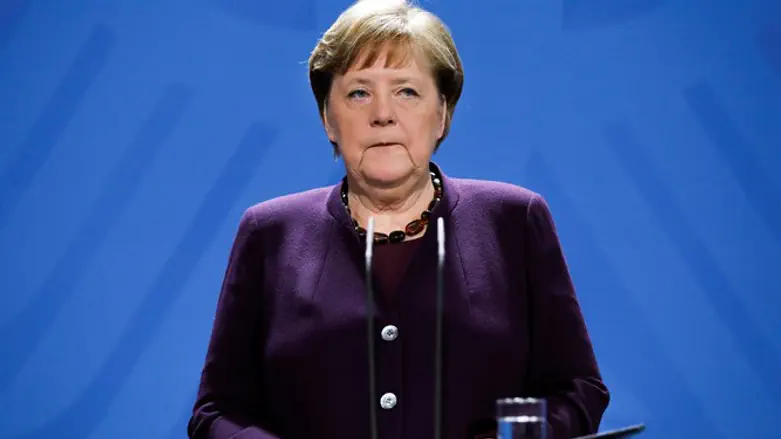
“On February 8, 2016, Merkel was in Turkey and gave a press conference there. Imprisoned for a newspaper article, I followed her on a small screen to my prison cell in Istanbul ”. This opens a very harsh article in the main German weekly Die Zeit by the most famous Turkish anti-Erdogan journalist, Can Dündar. "The person who wrote that article will pay dearly," Erdogan said in 2015 after the Cumhuriyet newspaper, then headed by Dündar, published exclusive information on the delivery of weapons to Syrian Islamist rebels at the hands of Turkish intelligence. Dündar was sentenced to 27 years in prison for "espionage". He then decided to go into exile in Germany, after having also escaped an attack outside a court.
"It was of great importance what Merkel would have said as the 'Chancellor of the free world'" writes Dündar again in the Zeit, using quotation marks. “A colleague intervened in the press conference and reminded Merkel that I was about to be sentenced to life imprisonment. He asked why the German government was silent: 'Is this attitude the price for the refugee deal? Does Germany reveal its values? '

The Wall Street Journal headline was "Merkel's Road to Moral Surrender." Why so much German subjection to Turkey? "You can imagine how excited I was in front of the screen. Wouldn't Merkel, who described the fall of the Berlin Wall as the most beautiful of her everyday days, have said a few words about a regime that has locked the free press behind walls? Unfortunately, however, the Chancellor said: 'We talk about everything, including the working conditions of journalists'. 'Working conditions'? Was that all? You can imagine what a journalist in prison felt when she heard this sentence ”.
"You can imagine how excited I was in front of the screen. Wouldn't Merkel, who described the fall of the Berlin Wall as the most beautiful of her everyday days, have said a few words about a regime that has locked the free press behind walls? Unfortunately, however, the Chancellor said: 'We talk about everything, including the working conditions of journalists'. 'Working conditions'? Was that all? You can imagine what a journalist in prison felt when she heard this sentence ”.
The next day, concludes Dündar, the newspapers wrote that a complete agreement had been reached with Merkel on the refugee crisis. “Apparently, just as the question implied, the German government's silence was the price to pay for the deal. But the reporter who asked the question was Deniz Yücel. When Ankara realized that Berlin could be blackmailed on refugees, he too was arrested a year later. If you ask me which side Germany is on in this great battle, I can only show you, deeply disappointed, a photo of Mrs. Merkel on Erdoğan's golden throne ”.
A dossier should be put together on how Angela Merkel capitulated to Erdogan, since she gave the green light to the Turkish president's request for a trial against the German comedian Jan Bohmermann, author of a satirical poem against her. On Merkel, Böhmermann said, "she made me fillets and served a neurotic despot for tea." And the Wall Street Journal headline read "Merkel's Road to Moral Surrender."
Why so much German subjection to Turkey?
The famous French philosopher Pierre Manent in the latest issue of Le Grand Continent evokes a cultural motivation: "Why were the European institutions so eager to see Turkey enter? To show that Europe was not a Christian club. It's a bit perverse. If we try to be honest, we must recognize that Turkey had a homogeneous Muslim population, because Christians were forced to flee Turkey in 1923 following the Greco-Turkish war. Thus, at the very moment that Europe made the choice to leave behind its national past, it simultaneously encouraged the integration into Europe of a nation marked by a nationalism that had no intention of opening itself up to others. It was a way to show that we weren't a Christian club. I think this is a particularly dangerous position”.
But there is also an economic motivation, as revealed by an investigation by the German newspaper Die Welt. 100 billion dollars of European banks invested in Turkey. The main Spanish bank BBVA is particularly involved. It owns 50 percent of Garanti Bank, the third largest Turkish bank. The Italian UniCredit, in turn, has a 41 per cent stake in Yapi Kredi, the fourth largest Turkish bank. Just open the economic news for the past two months. Erdogan has just obtained 82 million euros from the German bank KfW for migrant programs. Then 3.1 billion euros from Germany and other European countries for the energy transition. In August, another 1.2 billion euros from Deutsche Bank.
In recent days Erdogan, who controls a third of German mosques, obtained from Cologne, the "capital" of Turkish Islam in Germany, the announcement that the Friday prayer will be held with loudspeakers from 50 mosques (Erdogan was present at the inauguration). Merkel did not say a word about Cologne, but Lale Akgün of the SPD did: "The permission for the call of the muezzin from the mosque is a bow to Erdogan's activities in Germany." And Ahmad Mansour in Focus, who talks about the "conquest by Erdogan”.
It could only end like this by putting together a treasure trove of economic interests, a German chancellor who never seems to have been guided by any principle or ideal but by a boundless political cynicism, and a Turkish neo-sultan who has always affirmed that "mosques are ours barracks, domes our helmets, minarets our bayonets and the faithful our soldiers ”
